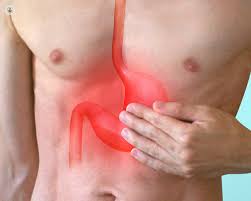
Battling Holiday Bloating: Expert Tips to Avoid Digestive Discomfort
As the holiday season draws near, so do the abundant feasts and family gatherings that make this time of year special. But along with the joy of indulgence often comes a less welcome guest: bloating.
Bloating, characterized by a feeling of trapped gas, fullness, or abdominal pressure, can last from a few minutes to several hours depending on the cause, explained Dr. David Szafron, a gastroenterologist at Baylor College of Medicine.
“We are still learning the ways bloating can occur,” Dr. Szafron shared in a Baylor news release. “Some of the most common causes include food, medications, gut bacteria imbalances, changes in gut motility, prior surgeries, constipation, and disorders of gut-brain interaction.”
Common Culprits: What Foods to Watch Out For
When it comes to triggering bloating, certain foods stand out as major offenders. Lactose and fructose, two commonly consumed carbohydrates, top the list.
“As we age, many of us lose the enzymes needed to effectively digest these carbohydrates, which can lead to bloating,” Szafron said. Foods rich in these components include asparagus, cauliflower, garlic, onions, apples, mangos, peaches, pears, watermelon, chickpeas, and wheat-based products like pasta. Dairy products such as cream cheese and cow’s milk, as well as plant-based alternatives like soy and oat milk, can also trigger bloating in sensitive individuals.
Even artificial sweeteners like mannitol, xylitol, and sorbitol, often found in sugar-free products, can contribute to bloating.
Managing Bloating: From Prevention to Action
While bloating is a common experience, recurrent symptoms—occurring more than once a week over several months—may require closer attention. Dr. Szafron recommends keeping a food diary to identify problem foods. Often, a clear pattern emerges, enabling individuals to pinpoint and moderate their consumption of triggering items.
Beyond dietary adjustments, regular exercise and good bowel habits can help prevent bloating. Physical activity stimulates the bowels and promotes digestion, while smaller portion sizes can minimize discomfort when eating potential triggers.
For those who continue to experience severe bloating accompanied by symptoms such as weight loss, vomiting, or intense pain, it’s essential to consult a doctor promptly, Szafron emphasized.
A Digestive Plan for the Holidays
With a bit of awareness and preparation, holiday meals don’t have to leave you feeling uncomfortable. By understanding your triggers, making mindful dietary choices, and incorporating exercise into your routine, you can enjoy the festive season without digestive distress. If symptoms persist, seeking professional advice can ensure your holidays are filled with cheer rather than discomfort.